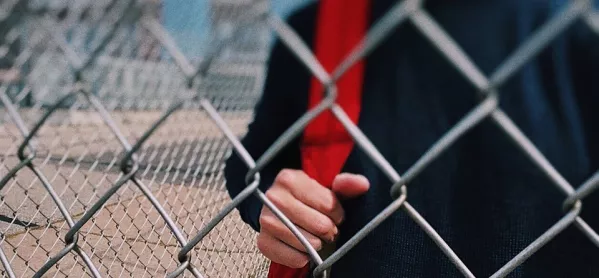- Home
- Coronavirus: How to support vulnerable pupils at school
Coronavirus: How to support vulnerable pupils at school

This time of coronavirus, risk, isolation and the unknown is a time of anxiety, fear and pain and even panic and helplessness for some; but it’s also potentially an opportunity for growth both for individuals and for society.
My expertise is with those who work with our most vulnerable children, and I am aware that along with our essential key workers’ children, vulnerable children are being encouraged to come into school while the majority stay safely isolated at home with their families. This has got me thinking about three key things:
- Whether many will come - as staying at home may feel easier, and their anxious parents may struggle to manage this. Early indications suggest numbers are low.
- What will school staff do with them? Will there be mixed-age groups? Will there be mixed groups of key worker children and vulnerable children?
- Whether the small numbers and reduced “work” pressure, plus the obvious need sometimes to talk (and play) through anxieties, will lead naturally to a more child-centred, nurturing atmosphere.
Understanding vulnerable children
We can all regress and “act out” during tense, anxious times. Staff will carry these anxieties, too. It is essential that they attune to and support each other. Talking things through is therapeutic for everyone.
But vulnerable children may very well not have this kind of thoughtful attuned support. Trauma and anxiety without support is like a black hole into which we might fall at any moment.
For traumatised children, this stress could trigger big anxieties, reactions and even panic outbursts, because they will have a “double whammy” - their own triggered trauma reactions plus the current family anxieties as well as all the changes in school and life.
They may also be conditioned to pick up on any anxieties in their teachers - just to “keep safe”.
Their snappiness (for example), their outbursts or their silent withdrawals could be like unconscious communications, which could be helpful to try to understand. It could certainly modulate the responsiveness of staff, for example. It will not be easy for children or their teachers and carers.
So, the teachers and staff who come into school to work with these children will have challenges.
If however, they could develop enough understanding and nurturing child-centred capacities it could be a quite unique opportunity to give such vulnerable children something supremely valuable, which they may not have had before.
A chance to listen
What will help facilitate this opportunity?
Certainly not blaming their parents or blaming society. Instead, there may is an opportunity to notice and perhaps understand their tendencies, and their moment-by-moment communications.
A detailed understanding of their attachment patterns will give a framework for thinking, and lead to helpful ways of responding.
Enough understanding of the effects of trauma on the brain, on learning and memory and on (triggered) behaviours, etc, will help staff to know that in the moment children often can’t help their reactions. They need help.
Some understanding and practice of nurture will be invaluable. NurtureUK have been saying this for years. It is facilitated by a secure, relational, family-type atmosphere with family-type meals and conversation, and lots of talking and playing through any issues that arise.
Thoughtful, empathic responsiveness along with firm boundaries will enable children to feel secure and held in mind.
Calming activities
A knowledge of calming activities will be helpful - both left-brain non-emotive activities like dot-to-dots and jigsaws, and short, calming meditative breaks like creative visualisations, as they are open to it.
Integrating all these approaches into the school day, particularly with a small group of vulnerable children (or, even better, a mixed group including good role models of the non-traumatised key worker children) on a daily basis will give them a different more healthy experience of relationships and trust.
Slowly enough, trust and security will grow to enable learning and normal conversations.
Of course, there will be hiccups. They may be freaked out by these caring relationships they are coming to value, and resist the adults they are coming to care about - for fear of the usual rejection or abandonment, which they couldn’t bear.
But if staff can understand these ups and downs and support each other, if they can talk such difficulties through reflectively with each other, they will perhaps make a real difference to a child’s life, and that is so rewarding.
Maybe some good can come from these hard times.
Angela Greenwood is a former educational psychotherapist and former primary Sendco
Keep reading for just £1 per month
You've reached your limit of free articles this month. Subscribe for £1 per month for three months and get:
- Unlimited access to all Tes magazine content
- Exclusive subscriber-only stories
- Award-winning email newsletters